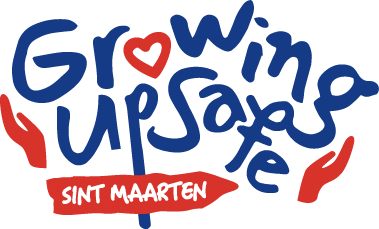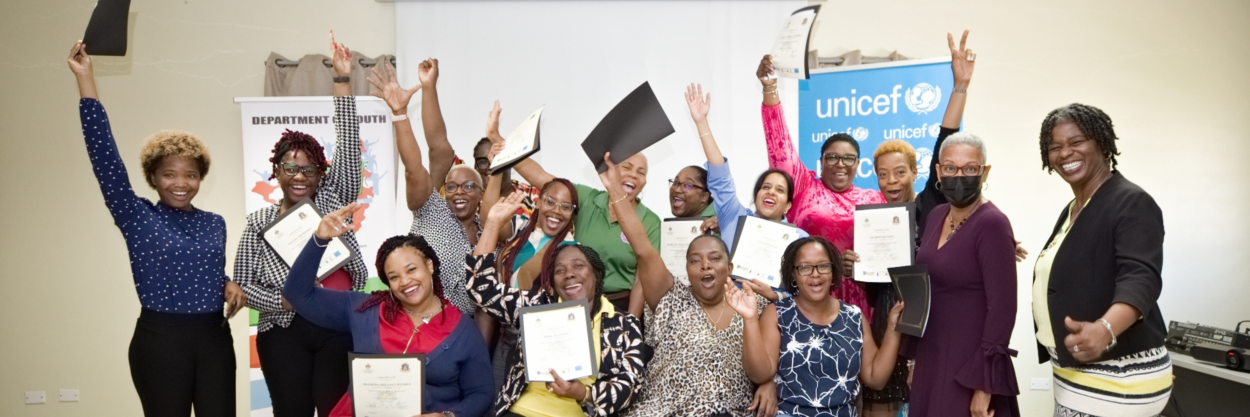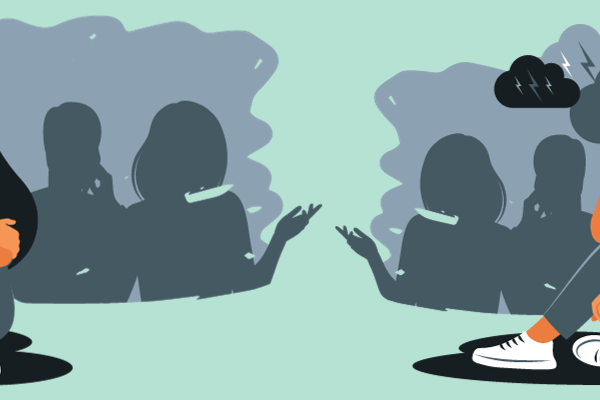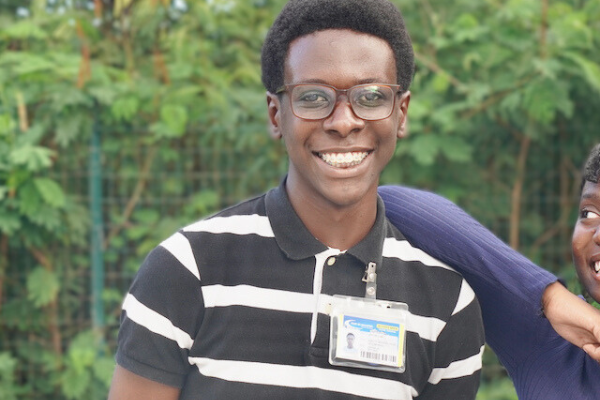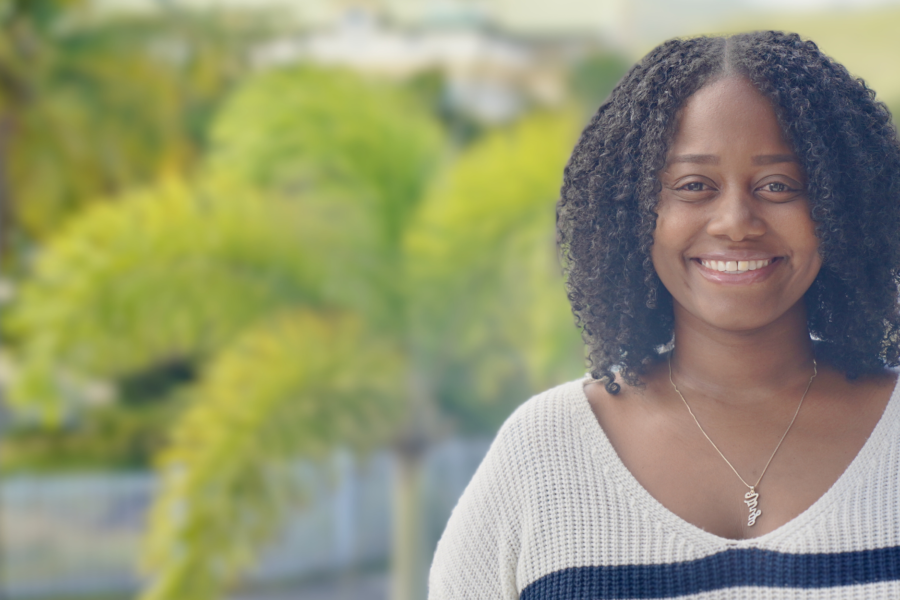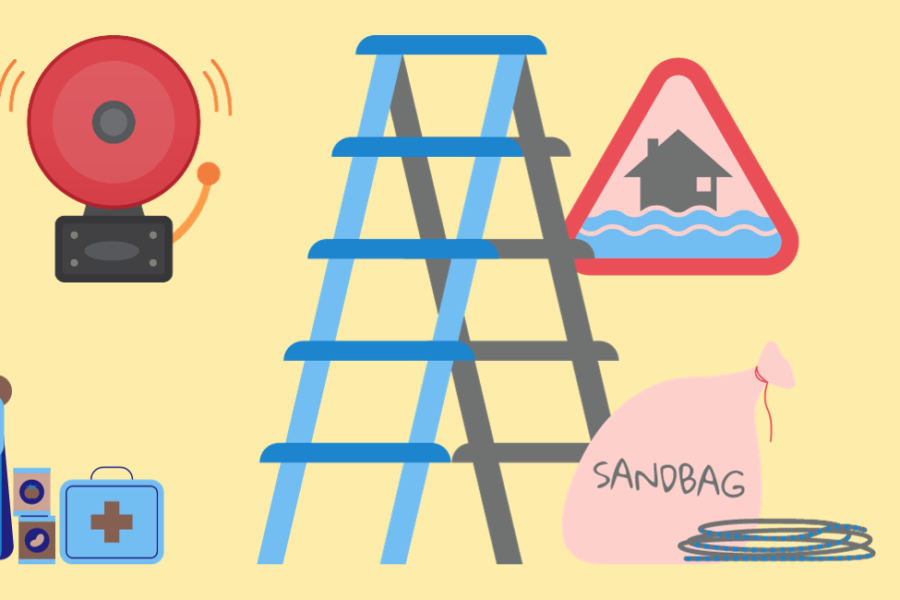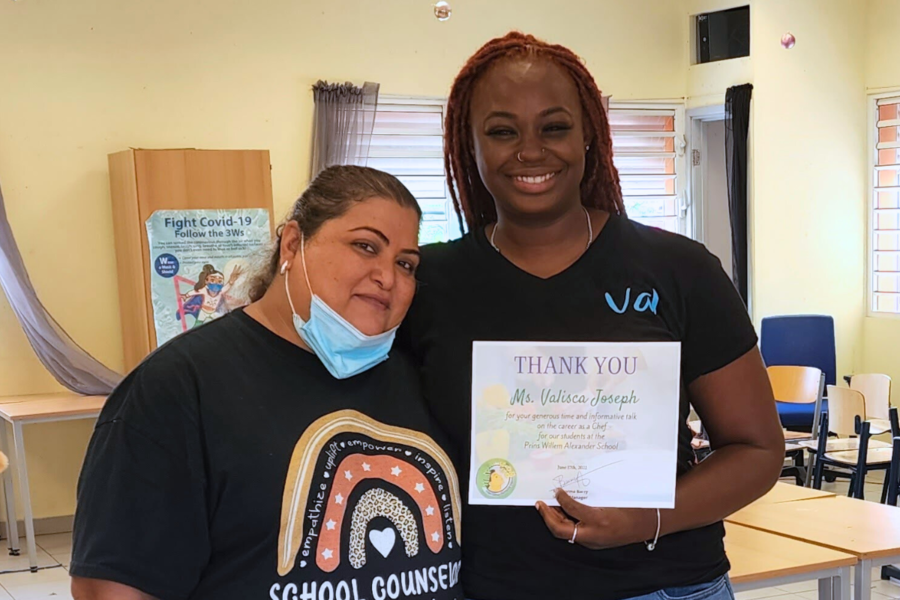“If we want children and adults to cope positively with trauma or difficult situations, we must become a society that focuses on the overall wellbeing of our population.” – Drs. Shameda Delaney Weekes.
Drs. Shameda Delaney Weekes describes herself as a “mother, wife, sister, aunt, entrepreneur and academic – with a passion for wellbeing.” She believes in lifelong and self-directed learning. Shameda has a Master’s degree in Adult Learning and Global Change and is certified as a teacher and life coach. She recently completed the Positive Parenting Support Programme (PPSP) Master Trainer certification in St Maarten. Shameda uses all these qualifications daily as the proud owner of Happy Me Empowerment Services and guidance counsellor for the St Maarten Academy Academic.
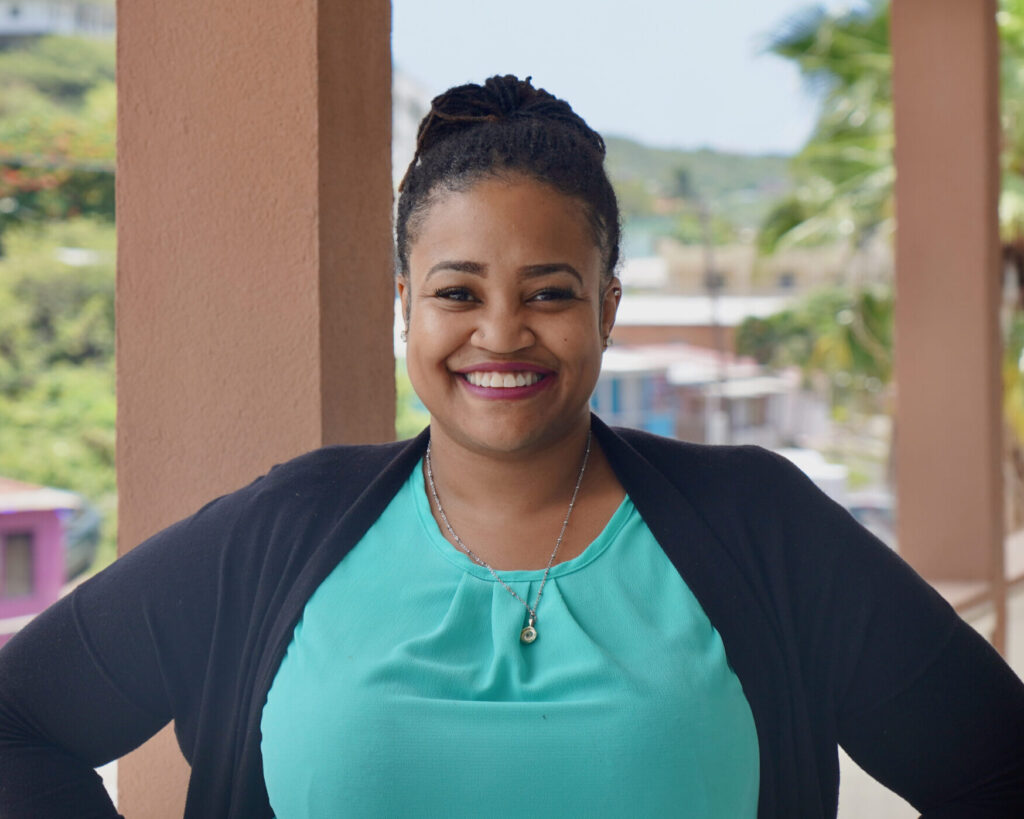
“I’m passionate about wellbeing. Everyone deserves to be happy regardless of their circumstances.
Society focuses on money and/or status as a measure of success, which does not guarantee happiness. Personal wellbeing should be our focus, and will ultimately result in a happier, healthier, and safer society.”
What do you like about your work as a school counsellor?
The young people I work with are so full of life. All their emotions are extreme; when they are excited about something, it is displayed as full-blown excitement. Even though they are still discovering themselves, but also unapologetically themselves. In this line of work, it is so essential that you truly love working with youth – they can sense if you are genuine or not.
What are some of the subjects they approach you for?
Part of my work is to guide my students in their educational and career choices. Before furthering your education, you don’t always know what you want to do with your life. Experiences give you more clarity. I help them gain this clarity through assignments, group- and one-on-one discussions, and by encouraging them in the areas they excel in.
They also can talk to me regarding their struggles. The information they share with me is confidential – unless it’s a pregnancy or they might harm themselves or someone else. If a student displays problematic or violent behaviours, we counsel them and try to determine the root of this behaviour. This sets the foundation to encourage positive coping behaviour of the student.
What is a coping style or behaviour?
In humans, coping behaviours are actions to soothe oneself during or after a stressful or threatening situation. These behaviours can range from unhealthy to healthy (also called adaptive or maladaptive) for a person’s well-being. Even harmful behaviour can feel good or like a release in a moment of stress – think about the last time you yelled in frustration. It probably felt good at the moment.
There are MANY coping behaviours. Some can be hard to identify as unhealthy, as you might have been using a coping style for a long time and are unaware that it’s been affecting your happiness or potential.
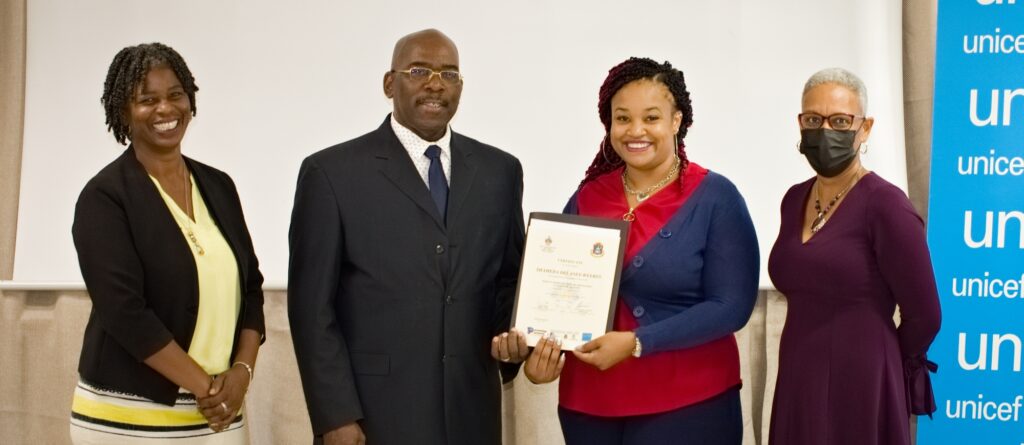
What are some examples of unhealthy and healthy coping behaviours?
Several healthy examples are exercise, meditation or prayer, journaling, making time for relaxation, laughter, positive conversations, etc. Often, we underestimate how vital ‘self-care’ is. Even simple self-care actions like getting a pedicure or going to the barber can help you positively process difficult or stressful moments.
A few unhealthy examples include isolating yourself for a long time when something stressful happens. Or that you are too dependent on others. Anger, worrying too much, impulse spending, overworking – and even ‘toxic positivity’ – that you try to be so positive you pretend problems don’t exist.
Some that I have seen with my students include self-harm, choosing to shut down, screaming, violent outbursts, etc. Often this is labelled as just ‘bad behaviour’ – however, they are likely just coping with a difficult situation or past trauma.
In response to stress or trauma, why do children develop unhealthy coping styles instead of healthy ones?
Children often learn their coping styles from the people or examples around them. We have a lot of adults in St Maarten who have not learned how to cope in healthy ways. Teaching a child new positive behaviour is challenging when their environment isn’t healthy. If we want children and adults to cope positively with trauma or difficult situations, we must teach them to do so. Dealing with traumatic situations, building resilience and any other relevant life skills about wellbeing, should be a vital part of our children’s curriculum and our society’s personal and professional development opportunities.
Some child-protection considerations are?
Unhealthy coping can put you in danger of being hurt or hurting others. It can negatively influence your relationships, work, and overall life quality.Physically, if you act out aggressively when stressed, this can cause you or others harm. An array of mental issues can result from unhealthy coping, including anxiety or avoiding responsibilities. Or instead, you put others down when triggered; for example, in school, this can result in bullying other students.
How can you support a child (or adult) to curb unhealthy coping behaviour?
Introducing positive outlets or new positive habits is the best way. It is hard work to break a bad behaviour or habit. So instead, I like to look for positive alternatives that can slowly replace the negative behaviours. For example, when adults exercise more, unhealthy habits such as drinking or smoking tend to decrease or stop.
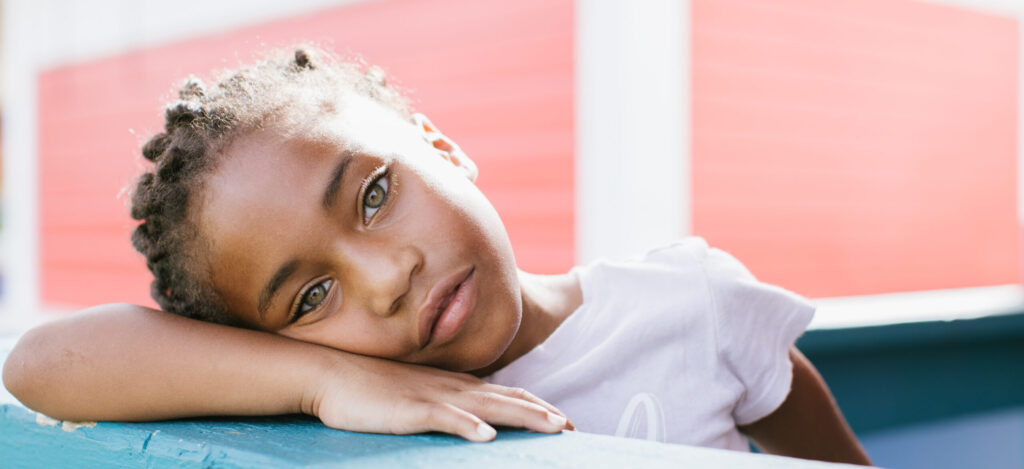
How do we prevent negative coping styles from developing?
We should teach children and their parents or caregivers to identify and communicate their feelings. If a child is going through a tough time, you need to talk to them to figure out what they are feeling and what is going on.
Practising self-reflection is part of this. Reflect, acknowledge, and explain to your child why you misbehaved, such as yelling out of frustration. And ask your child to reflect on their bad behaviour: why did you yell, how are you feeling, is there another way you could have dealt with the situation, etc.
So, do adults play a role in the coping behaviours of children?
When parents have a good relationship with their child, it helps prevent negative behaviours nine out of ten times. This is why we should consider how we support parents when discussing children’s behaviour. This is why I am so excited about the Positive Parenting Support Programme. The PPSP can potentially teach more parents how to connect with their children and build a support network of other parents.
Lastly, I want to remind readers to prioritise their well-being. Some think that this is ‘selfish’, but on the contrary, if you feel more relaxed, fulfilled, and happier, you will be able to be kinder and more helpful to others. Remember:
“You can’t pour from an empty cup. Take care of yourself first.” – Norm Kelly
